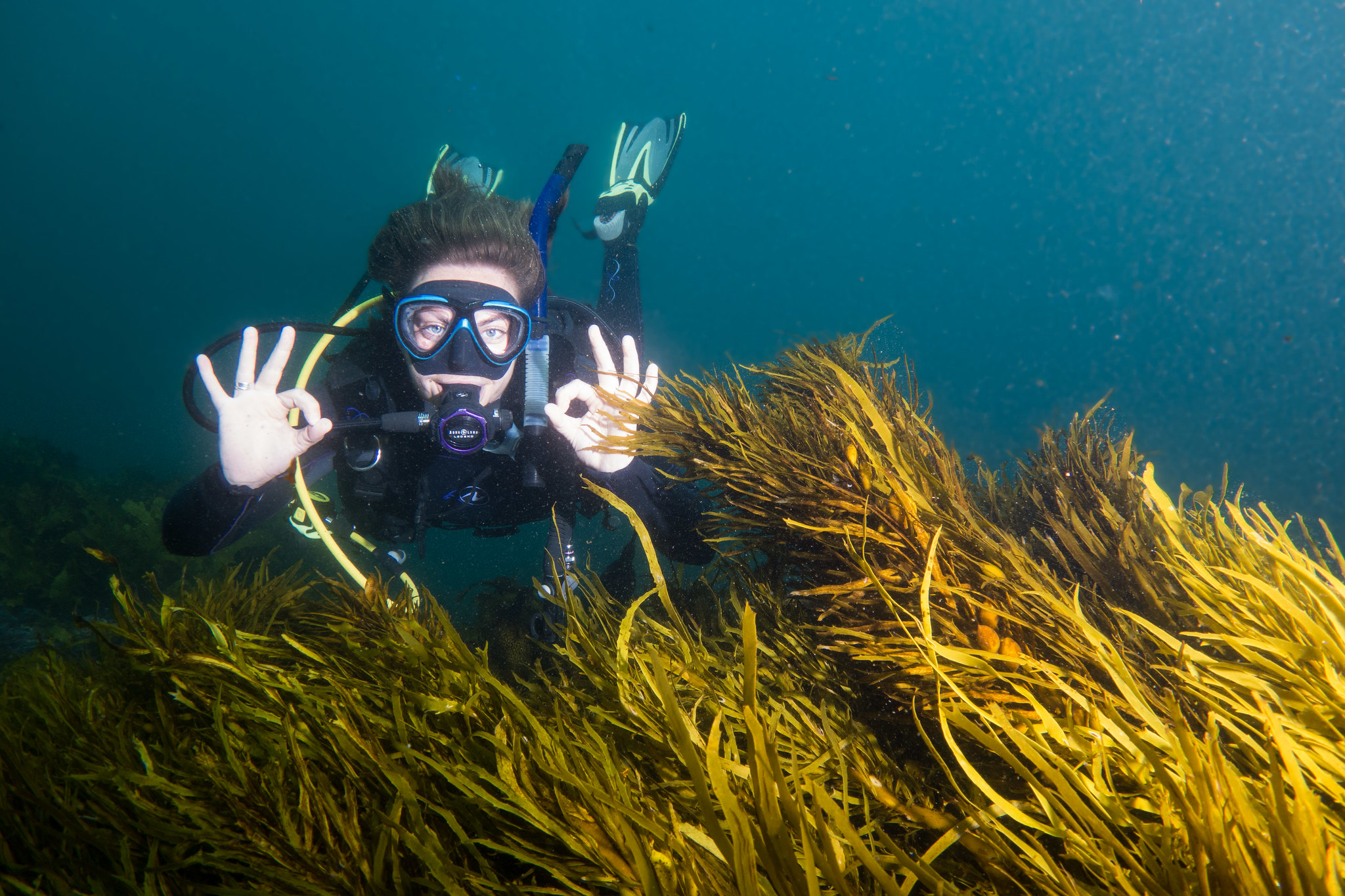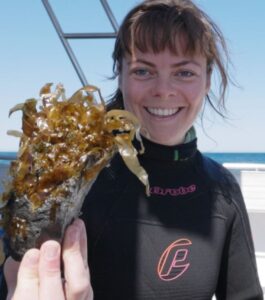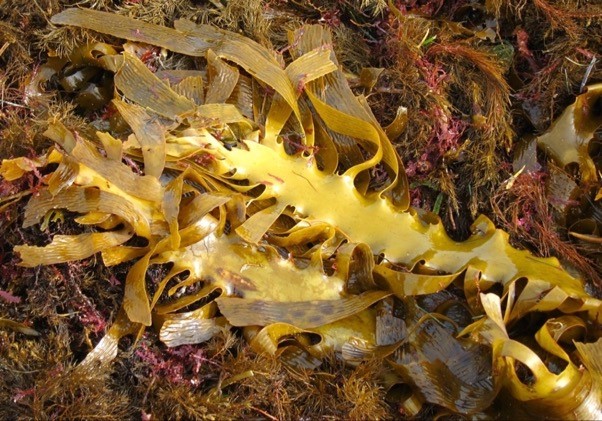
A new research project at Flinders University aims to explore and develop lucrative industrial-scale seaweed production, expected to create hundreds of jobs in regional Australia in future years.
The restoration of seaweed forests for aquaculture, a more healthy marine environment and carbon storage are the themes of the new Australian Research Council project.
With funding from a $467,577 ARC Early Career Industry Fellowship, WA marine biologist Dr Georgina (‘George’) Wood will soon be expanding her work in the ecology, restoration and genomics of Australian seaweeds at Flinders University, in partnership with primary industry departments of SA and NSW.
The project will set out to map and sample golden kelp and other seaweeds along the south-eastern coastline and combine genomics, artificial intelligence and experimental ecology to develop guidelines and technologies that maximise the growth and resilience of key seaweed species for aquaculture.

This will benefit government, aquaculture and ecosystem management by improving design, assessment and implementation options for sustainable and productive use of Australian seaweeds, Dr Wood says.
The industry partners include government agencies Primary Industries and Regions SA (PIRSA) and its research arm SARDI and the NSW Department of Primary Industries.
Her research with the University of Western Australia’s Oceans Institute includes contributing to pioneering work progressing the ‘green gravel’ technique in providing scalable, practical solutions to restore and ‘future-proof’ kelp forests.
The ARC-funded project, led by Professor Thomas Wernberg, involves regeneration of ‘blue forests’ in golden kelp (Ecklonia radiata) reefs in WA – some of them degraded by human activity, heatwaves and climate change.
Dr Wood has also worked on seaweed genomics and ecology in NSW, including designing a restoration program for a locally extinct seaweed.
Around the world, seaweed cultivation is rapidly expanding for commercial production of food, pharmaceuticals, materials, agriculture supplements and ecosystem restoration.
In Australia, it’s forecast seaweed production could become a $1.5 billion industry with 9000 jobs by 2040 – while contributing up to 10% of Australia’s emission reduction goals.
Achieving this relies on the establishment of seedstock for hatcheries from wild seaweeds, and significantly expanding ocean-based seaweed farms.
 Dr Wood will join the College of Science and Engineering and collaborate with Associate Professor Martin Breed, who leads the Frontiers of Restoration Ecology Lab at Flinders University, Flinders Professor Elizabeth Dinsdale (marine genomics), Professor Luciano Beheregaray (fisheries and aquaculture genomics ) and Dr Ryan Baring (marine restoration).
Dr Wood will join the College of Science and Engineering and collaborate with Associate Professor Martin Breed, who leads the Frontiers of Restoration Ecology Lab at Flinders University, Flinders Professor Elizabeth Dinsdale (marine genomics), Professor Luciano Beheregaray (fisheries and aquaculture genomics ) and Dr Ryan Baring (marine restoration).
Another key collaborator is Dr Sasi Nayar, an experienced aquaculture expert in algal production from the South Australian Research and Development Institute (SARDI), the research arm of PIRSA.
This partnership will include access to the SA Aquatic Sciences Centre’s analytical laboratory at West Beach and support for field work and engagement with the seaweed aquaculture community.
SARDI is a significant stakeholder in the seaweed industry and management of the marine environment in SA and is responsible for ongoing seaweed restoration projects and the development of a hatchery for Ecklonia and other key algal species.
This collaboration further strengthens the strategic alliance between Flinders University and PIRSA, which was established in 2022.

